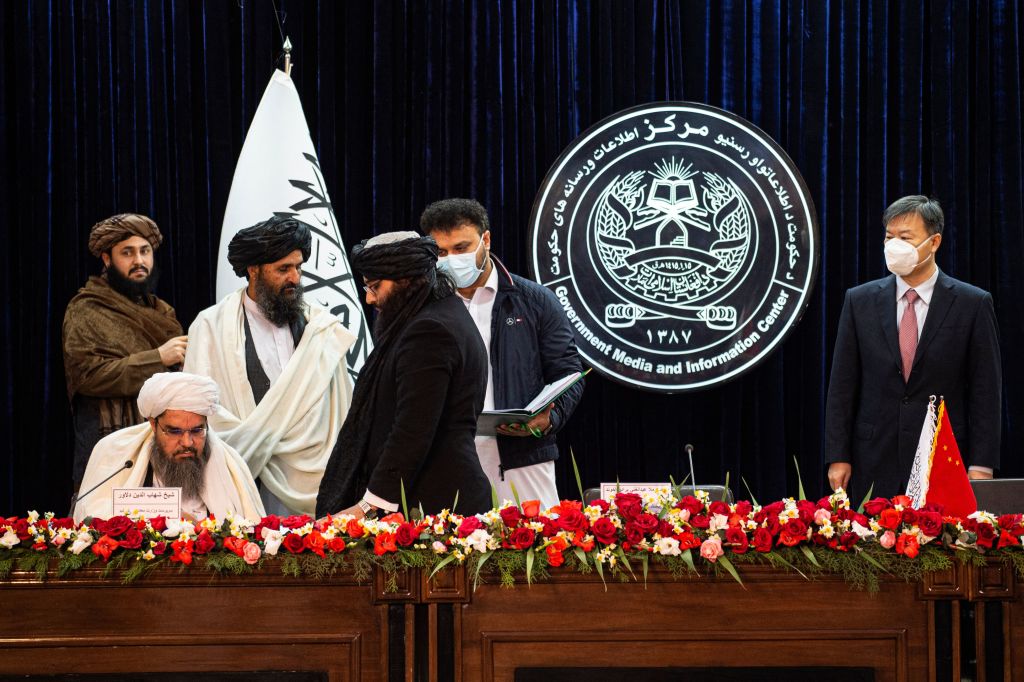In another sign of its increasingly prolific international diplomacy, China last month released an 11-point position paper on the “Afghan Issue”. China’s Afghan démarche came just two months after its 12-point position paper on Ukraine. Although far from China’s first foray into Afghan diplomacy, this latest document is the clearest and most detailed articulation to date of China’s perceived interests.
While China’s diplomatic efforts are unprecedently visible and expansive, a close reading of China’s Afghan Paper suggests that Beijing remains fundamentally reluctant to invest the political capital necessary to resolve the hitherto insoluble. Beijing’s objectives are in most cases narrower than first implied by its sweeping diplomatic vision statements.
Unlike Ukraine, Afghanistan is, at best, a third or fourth order priority now for the United States and the European Union. Most countries active in Afghanistan such as Russia, Iran, Pakistan and India are pursuing relatively parochial interests. This makes China theoretically best placed – especially through its quasi-alliance with Pakistan – to positively influence the Taliban’s behaviour.
China’s Afghan Paper combines narrowly constituted Chinese interests with political and social concerns. However, the weighting is strongly towards the former.
China calls for “moderate and prudent governance” in Afghanistan, including the building of an “open and inclusive political structure” where the rights of women and all ethnic groups are respected. Support for a “political settlement” is reaffirmed.
The force of these more interventionist points is otherwise thoroughly neutered. The paper denounces the “enormous losses” caused by attempted “democratic transformation”, while declaring Beijing’s respect for Taliban rule, cynically couched as the “independent choices made by the Afghan people”.
These statements are combined with professions of categorical respect for Afghanistan’s sovereignty, and a disavowal of “external interference” and “unilateral sanctions”. A special mention is given to the freezing of Afghan Central Bank holdings, which Beijing, with some justification, notes is undermining Afghanistan’s humanitarian situation.

The tenor of the position paper makes clear that China’s priority remains counterterrorism, specifically combatting the Uyghur separatist East Turkestan Islamic Movement (ETIM). Blandishments offered in exchange for Taliban suppression of ETIM include counter-terrorism assistance, “reconstruction”, and sizeable infrastructure investment.
This is essentially a reprisal of the carrot and no sticks formula that Beijing has offered the Taliban since the US withdrawal in August 2021. Both sides have arguably failed to deliver. China has only very recently announced its first sizeable Afghan investment. According to a 2022 UN Security Council Report, despite some Taliban efforts at restraint, ETIM has otherwise “rebuilt several strongholds”, purchased weapons and “expanded its area of operations”.
A keen student of the failure of successive foreign interventions in Afghanistan, China remains extremely wary entanglement in Afghanistan. Even if China’s calculus were to change, Beijing’s scope for intervention would likely be hidebound by its extensive rhetoric on the primacy of sovereignty, and opposition to sanctions and foreign interference.
Nor does China seem willing to opt for lower risk strategies such as leveraging its cordial relations with Afghanistan’s neighbours to meaningfully pressure Taliban. This hesitancy will naturally limit Beijing’s efforts to shape the Taliban’s behaviour, an already difficult proposition compounded by the group’s factional and devolved nature.
Similar self-induced constraints will also serve to complicate China’s Ukraine “peace plan”, or indeed its fanciful offer to facilitate Israel-Palestine talks. Vague offers of humanitarian assistance and post-conflict reconstruction will not alter Ukraine’s resolve. Surging Sino-Russian trade likewise belies hopes that China might be persuaded to cajole Russia into a workable peace settlement with Ukraine.
The obvious counter to this argument is China’s success in mediating a détente between Saudi Arabia and Iran. In actual fact, this deal was conceived in highly contingent circumstances and is unlikely to serve as a readily applicable template elsewhere.
A multitude of primarily domestic and strategic factors were already motivating Riyadh and Tehran to dial down the temperature. Both countries had been negotiating since 2021 through talks sponsored by Iraq, Oman and Kuwait. Beijing’s last-minute mediation seems to have provided a final impetus – undoubtedly helped by China’s status as the world’s largest oil importer.
The deal itself is also quite superficial, imposing few binding commitments beyond restoring diplomatic relations. There is no guarantee that it will drive an enduring de-escalation.
This does not mean that Beijing’s diplomatic overtures are without benefit. By casting itself as a peacemaker (in implicit opposition to the United States) China enjoys positive optics in much of the Global South. This is bolstered by the fact that China’s tradition of at least professed neutrality in most global disputes allows it greater flexibility to negotiate with opposing sides. Although few Western capitals believe that China’s Ukraine plan is viably or indeed sincere, in the absence of any alternative, European leaders and possibly even Americans have few choices but to engage.
Beijing’s position papers also serve a normative function in re-affirming its support of state sovereignty and opposition to non-UNSC sanctions, “military blocs”, or the re-deployment of military bases by “relevant countries” (read the United States) in Afghanistan. All of this is achieved in a way that entails limited political risk or binding commitments.
Until China puts more skin in the game, its global mediation efforts will ultimately be hard pressed to achieve truly transformational and enduring results.

